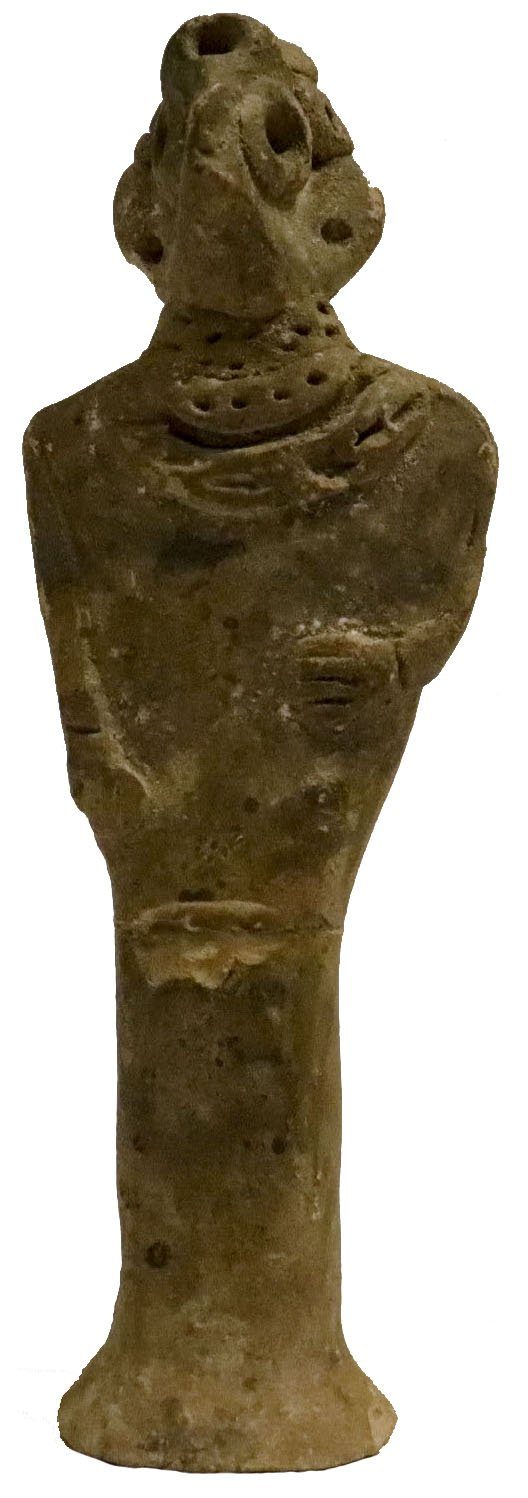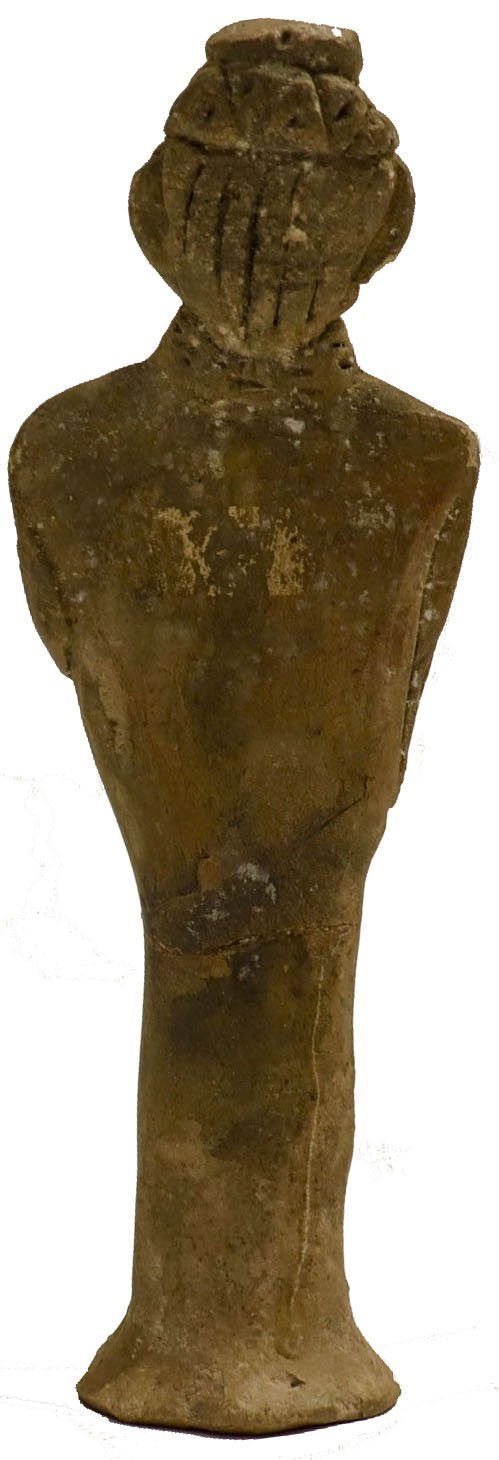750.00 €
Ancient Near East, Syria, Syro-Hittite. A lovely Syro-Hittite pillar figure of Astarte with mysterious eyes and an almost owl-like presence, and yet her monolithic body, with hands and delineated fingers placed over her breasts and hip, is still distinctly human. An applied necklace that is further embellished with incised striations graces her form and is flanked by her angular shoulders. The design of the eyes relates to the popular motif found on visual culture throughout the ancient Near East in which eyes are large and attentive in order to show religious devotion. Finally, her birdlike visage is topped by a skillfully delineated fancy coiffure. For the earrings, a couple of holes have been made. The figure is broken and glued in the hip area.
A wonderful rendering of Astarte, the goddess who was also known as Ishtar in some parts of Mesopotamia and was associated with femininity, motherhood, and war.
12x4cms
1500-1000 B.C.E.
1 in stock
Additional information
| Weight | 0.9 kg |
|---|
Subscribe and receive the lastest news


